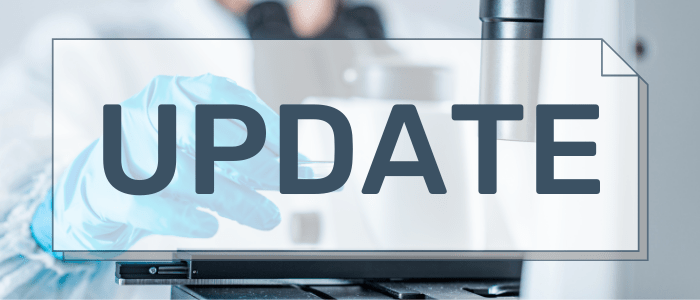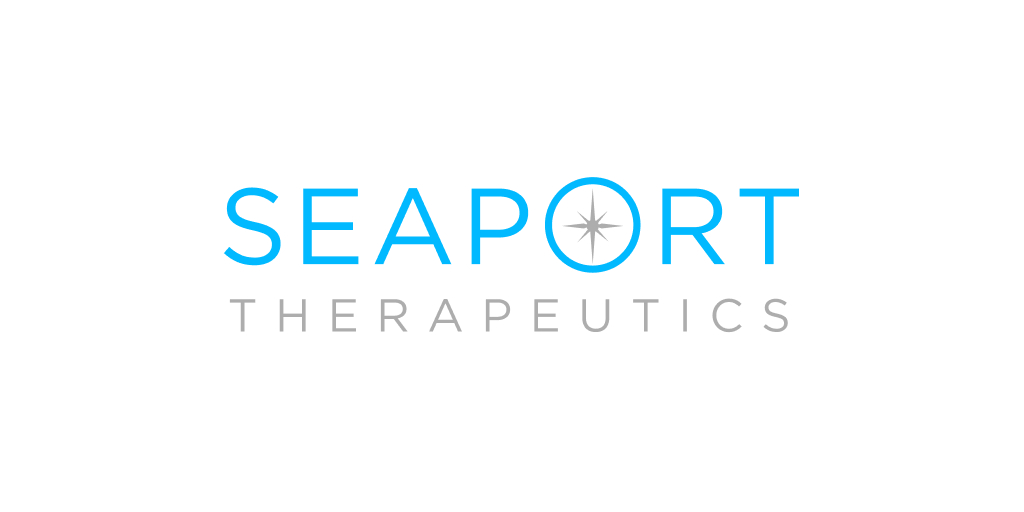Seaport Therapeutics Presents Data from Multiple SPT-300 Trials at Society of Biological Psychiatry (SOBP) Annual Meeting

SPT-300 demonstrated nine times greater allopregnanolone exposure in humans dosed orally than published data for oral allopregnanolone,1 validating Glyph™ platform’s ability to enhance oral bioavailability
In a Phase 2a trial, SPT-3002 substantially reduced stress-induced levels of cortisol, supporting Seaport’s planned studies in mood and anxiety disorders, including anxious depression
BOSTON–(BUSINESS WIRE)–Seaport Therapeutics, a clinical-stage biopharmaceutical company that is charting a proven path in neuropsychiatry, today announced two poster presentations detailing the results from multiple clinical trials of SPT-300 at the Society of Biological Psychiatry (SOBP) Annual Meeting in Austin, TX. SPT-300 has been shown to retain the activity and potency of natural allopregnanolone in an oral form and has the potential to capture the breadth of the naturally occurring neurosteroid, which is believed to have significant therapeutic potential in a range of mood and anxiety disorders, including anxious depression. The presentations detail data from the first-in-human, multi-part Phase 1 trial of SPT-300 and the Phase 2a trial of SPT-300 in the Trier Social Stress Test (TSST), a validated clinical model of anxiety in healthy volunteers, and include assessment of safety, tolerability, efficacy, oral bioavailability and GABAA receptor target engagement.
“These data summarize some of the evidence supporting the core mechanisms of SPT-300 as we advance to later-stage clinical studies. Our proprietary Glyph™ platform allows SPT-300 to be absorbed like a dietary fat through the intestinal lymphatic system and transported into circulation. We believe this will address allopregnanolone’s naturally low bioavailability but retain its endogenous mechanism and range of potential therapeutic effects,” said Michael Chen, Ph.D., Co-founder and Chief Scientific Officer of Seaport Therapeutics. “These data validate that SPT-300 has the potential to make a difference for patients suffering from depression, anxiety and other neuropsychiatric conditions and also provides further validation for our Glyph platform as an elegant solution to multiple key obstacles in neuropsychiatric drug development.”
Details of the poster presentations at SOBP
Title: A First-in-Human Phase 1 Study of SPT-300, A First-in-Class Orally Bioavailable Prodrug of the Neurosteroid Allopregnanolone that is Absorbed via the Lymphatic System
Presenter: Michael C. Chen, Ph.D.
The topline results from the completed, multi-part Phase 1 trial of SPT-300 were reported in December 2022. Overall, the Phase 1 trial was well tolerated and evaluated oral bioavailability, safety, tolerability, pharmacokinetics and GABAA target engagement. This study included double-blind single ascending dose, multiple ascending dose and open-label food effect parts.
Allopregnanolone is an endogenous neurosteroid of GABAA positive allosteric modulator with validated anti-depressant and anxiolytic activity, but orally administered allopregnanolone is poorly bioavailable. SPT-300 is absorbed through the intestinal lymphatic system, allowing it to avoid first-pass metabolism. Out of 99 participants enrolled in the first-in-human study, allopregnanolone exposure from SPT-300 was approximately nine times greater than published data for oral allopregnanolone. SPT-300 was generally well-tolerated and resulted in pharmacodynamic effects consistent with GABAA positive allosteric modulation. The pharmacodynamic and pharmacokinetic properties demonstrated warrant further clinical development. No treatment-related severe or serious adverse events (AE) were reported, and the most common AE was somnolence, which was mild in all cases.
Title: SPT-300, an Oral Prodrug of Allopregnanolone, Potentially Reduces Salivary Cortisol Response to the Trier Social Stress Test in a Randomized, Placebo-Controlled Trial in Healthy Participants
Presenter: Michael C. Chen, Ph.D.
The topline results from Seaport’s SPT-300 Phase 2a proof-of-concept trial were reported in November 2023. The potential of SPT-300 to reduce physiological stress was tested in a randomized, placebo-controlled study using the TSST, a validated clinical model of anxiety in healthy volunteers exposed to unpredictable, novel, anticipatory and social stress.
Among the enrolled healthy volunteers, SPT-300 substantially reduced salivary cortisol at all post-TSST timepoints compared to placebo and SPT-300 treated participants had significantly reduced cortisol versus placebo from baseline to peak (p=0.0001), meeting the study’s primary endpoint and demonstrating that SPT-300 regulates hypothalamic-pituitary-adrenal axis reactivity to acute stress. The most common treatment-emergent adverse event was somnolence (29% SPT-300 vs. 13% placebo), which was transient and mild or moderate. SPT-300 was generally well-tolerated and demonstrated GABA modulatory pharmacological activity that merits further investigation in stress-related mood and anxiety disorders, including anxious depression.
About SPT-300
SPT-300 (Glyph-allopregnanolone), an oral prodrug of allopregnanolone, an endogenous neurosteroid, is in clinical stage development for the treatment of mood and anxiety disorders, including anxious depression. Allopregnanolone has demonstrated therapeutic benefit in a range of neuropsychiatric conditions, but it is only approved as an intravenous infusion, which has limited the scope of its clinical use. Using the Glyph platform, SPT-300 retains the activity and potency of endogenous allopregnanolone in an oral form and has the potential to capture the breadth of the natural biological response. In a Phase 2a clinical trial, SPT-300 demonstrated proof-of-concept in a validated clinical model of anxiety in healthy volunteers. SPT-300 also demonstrated oral bioavailability, tolerability and γ-aminobutyric-acid type A (GABAA) receptor target engagement in healthy volunteers in a Phase 1 clinical trial.
About the Glyph™ Platform
Glyph is Seaport’s proprietary technology platform which uses the lymphatic system to enable and enhance the oral administration of drugs. With the Glyph platform, drugs are absorbed like dietary fats through the intestinal lymphatic system and transported into circulation. Seaport believes the Glyph technology has the potential to be widely applied to many therapeutic molecules that have high first-pass metabolism leading to low bioavailability and/or side effects, including hepatotoxicity. The Glyph platform has been refined at Seaport to efficiently generate multiple therapeutic candidates within the company’s pipeline. Seaport has exclusively licensed this technology from Monash University based on the pioneering research of the Porter research group, along with the co-inventors from PureTech Health and Seaport. The group and its collaborators have published research in Nature Metabolism, Frontiers in Pharmacology and the Journal of Controlled Release supporting the Glyph platform’s capabilities.
About Seaport Therapeutics
Seaport Therapeutics is a clinical-stage biopharmaceutical company advancing the development of novel neuropsychiatric medicines in areas of high unmet patient needs. The Company has a proven strategy of advancing clinically validated mechanisms previously held back by limitations that are overcome with its proprietary Glyph™ technology platform. All the therapeutic candidates in its pipeline of first and best-in-class medicines are based on the Glyph platform, which is uniquely designed to enable oral bioavailability, bypass first-pass metabolism and reduce hepatotoxicity and other side effects. Seaport is led by an experienced team that was involved in inventing and advancing KarXT and other neuropsychiatric medicines and are guided by an extensive network of renowned scientists, clinicians and key opinion leaders across neurological specialties. For more information, please visit www.seaporttx.com.
Footnotes
1 U.S. Food and Drug Administration. (2018). FDA drug approval package: Zulresso (Application No. 211,371)
2 SPT-300, formerly known as LYT-300
Contacts
Seaport Therapeutics
[email protected]
Media
Nichole Bobbyn
+1 774 278 8273
[email protected]

